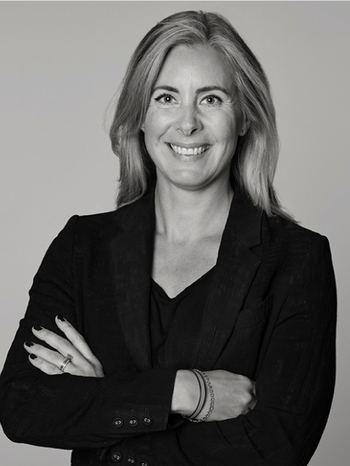Ola Billgren
'Portrait of Sven Henrysson'
Signed Ola Billgren and dated -74 verso. Oil on canvas 54 x 69 cm.
Exhibitions
"Neuer Realismus aus Schweden", Bonn, Nürnberg, Dortmund, and Lübeck, 1975.
Malmö konsthall, Malmö, "Farväl realism! (Neuer Realismus aus Schweden)", 10 December 1975 – 25 January 1976, cat. no 13.
Literature
Exhibition catalogue, "Neuer Realismus aus Schweden", Ausstellungskomitee: die beteiligten Künstler (Lars Kleen ...), Malmö 1975, illustrated p. 22.
More information
The portrait of the artist's friend Sven Henrysson is part of a series of portraits created during an important transitional phase in Ola Billgren's painting around 1970. They depict scenes from his own life, from the summers in the house in Skåne, with family and close friends portrayed in different moods. He works with light and shadow, sometimes from a room with a view of a lush garden, sometimes with a room in shadow with reflections of sunlight as the only source of light. The series of portraits and self-portraits are unique in that they were created during a period of calm "in the eye of the storm" ahead of Billgren's painting entering a new phase.
Billgren's artistic career undergoes several metamorphoses. Early works from the 1960s can be called abstract with a strong interest in details as realistic points in the image. Around 1963, he began painting photorealistically, and he made his breakthrough in 1966 in an exhibition at Galleri Karlsson in Stockholm. Ola Billgren's realism has both art historical and literary references, which he clearly marks in his writings, referring to older painters such as the 17th-century Dutch master Vermeer van Delft, but also to his contemporaries, including Jan Håfström. Film was an important source of inspiration. Outwardly, at the end of the 60s, he was an extremely successful young artist, whose work was praised by both critics and the general public. But for himself, he felt increasingly diminished by the "new realist" idiom and the 1960s program that characterized his art. Billgren describes how the development of modern art in the 1960s was powerless in the face of the pulsating flow of iconographic signs: photographs, advertisements, traffic signs, posters, abstract artworks, and comic books. He felt that he had lost touch with himself in his pursuit of "objective" art. Ola Billgren now enters a phase in his painting that will largely continue for the rest of his life. He breaks with photorealistic painting and seems to have given up the belief in the existence of an "objective" painting. Instead, he allows his brush to become freer, and the color will also take on tones that relate his images to the chromatic melancholy that can be found in landscape and cityscape paintings in European art around the turn of the century.
The portrait of the friend Sven Henrysson was painted during the transition between the early extreme realistic painting and the less representational painting that culminates in the red period. The portraits created during this time are characterized by tenderness and melancholy, a more traditional style of portrait painting with the individual in focus. In the current work, Sven Henrysson is captured by the artist, deeply lost in his own thoughts. The wall behind is a muted earth color, and the sparse light falling on Sven Henrysson's face, is reflected in the shiny surface of the brass dish on the wall. The dish is a not only symbol of the model's interest in art and antique works of art, but also a reference to the old Dutch masters. Billgren has described the portraits created during this period in the 1970s as a kind of "atonement" for his insensitive vision and fragmented view of humanity of the 1960s.
Artist
Ola Billgren was born in 1940 in Copenhagen but based his career in Sweden. Billgren was self-taught, having only been trained by his parents Hans and Grete Billgren. Ola worked within the mediums of graphic art, watercolour, collage, photography, film, and scenography. He was also an author and culture critic. Known for his versatility, Billgren cultivated a relationship between art and reality in his work.
During the 1960s, he transitioned from abstract expressionism to photographic realism. Over time, his paintings evolved into a fusion of abstract and photorealistic styles, resulting in romantic landscapes where he examined the interplay of light and color. Forms dissolved, and colors were reduced to monochrome, single-colored surfaces that were richly worked and varied.
In the late 1980s, he returned to urban environments in large cityscapes, often painted from a high perspective but maintaining the impressionistic approach seen in his landscapes. Ola Billgren's influence on recent decades of art has been significant. His work is represented in institutions such as Musée National d'art Moderne Centre George Pompidou in Paris and Moderna Museet in Stockholm.








































